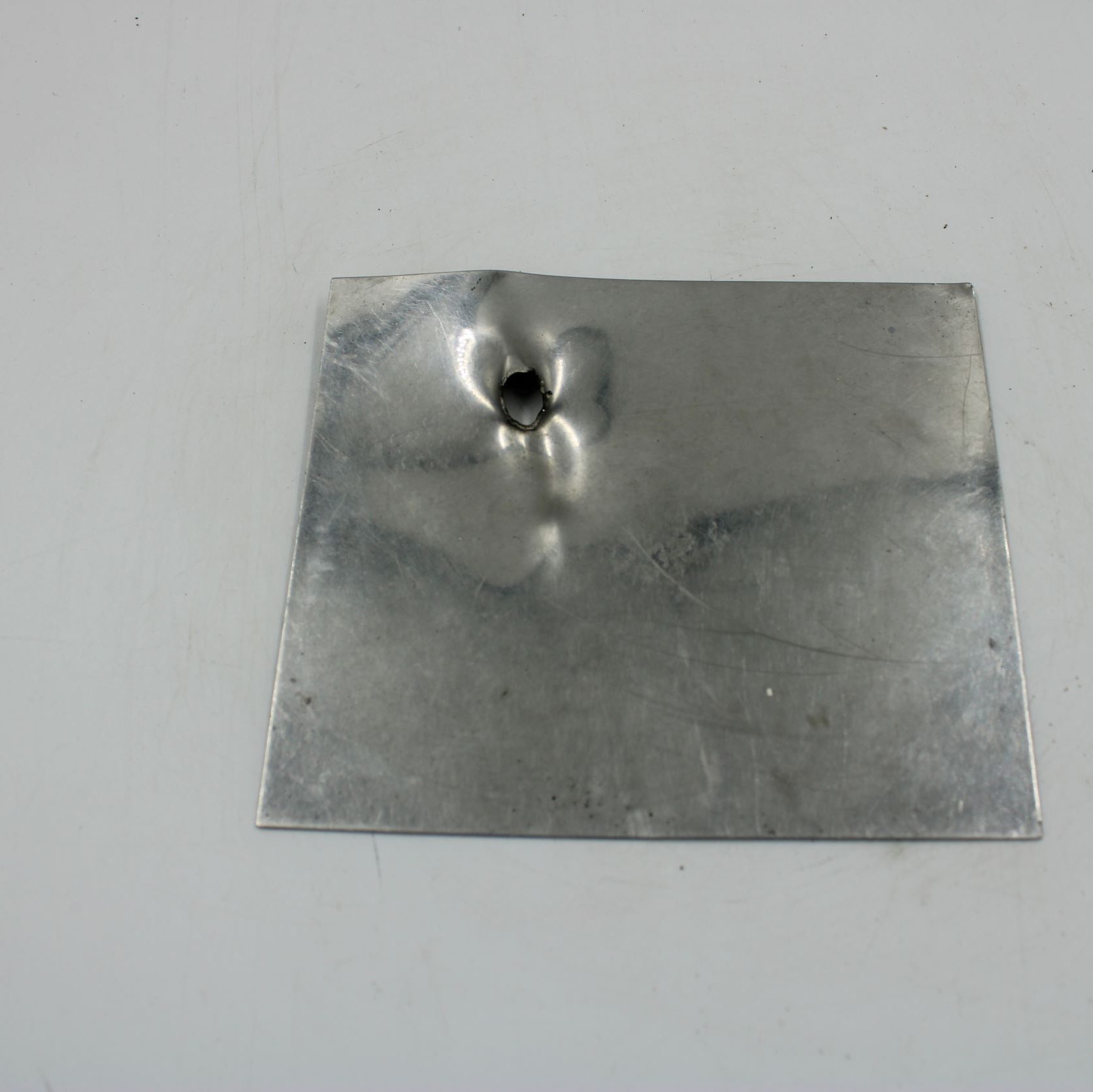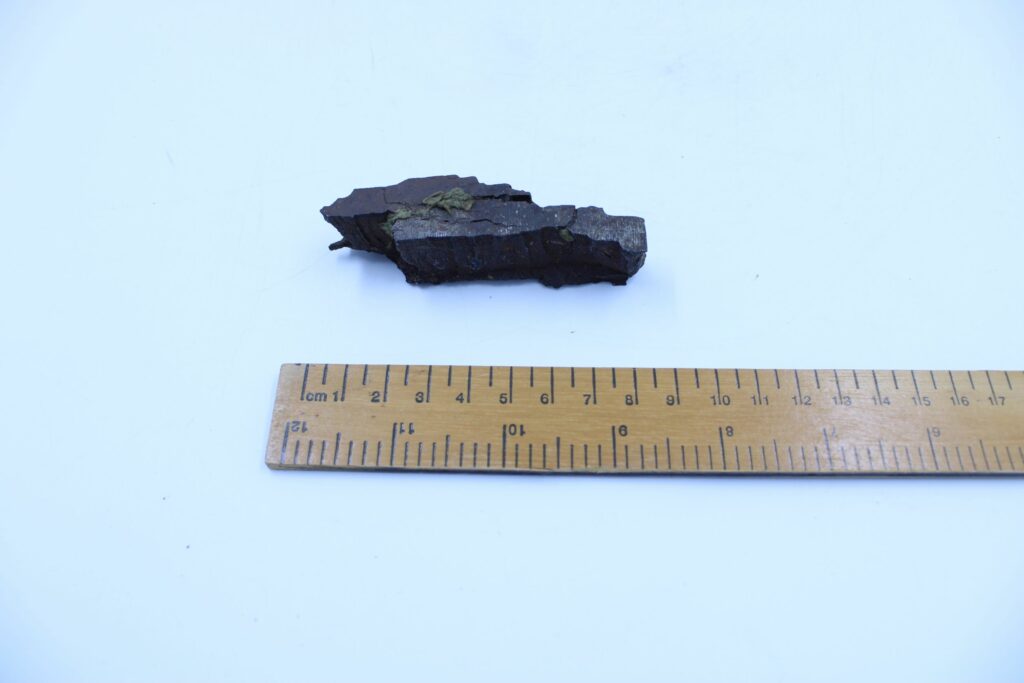A small, seemingly unremarkable, square piece of metal sits on display in our second world war gallery. It was used by Lieutenant Duncan Bishop as a shaving mirror, but it holds much more significance than that of a personal care item.
The mirror has a bullet hole through the top corner which passed through the plate before flying between Lt Bishop’s ribs. Lt Bishop was in the 5th Battalion of Duke of Cornwall’s Light Infantry during an attack on Hill 112, Normandy on the evening of 10 July 1944. This was an area of high ground near Caen which was strategically important. The 5th Bn came under heavy machine gun fire and Bishop was hit by two bullets; one grazed his left upper arm and the other entered his left chest, passing through the steel plate carried in his inside breast pocket. The bullet continued between his 4th and 5th rib and exited to the right of his breastbone.
The impact of the bullets knocked Lieutenant Bishop to the floor. Here a member of his platoon placed a field dressing on the wound, and he was left in a slight dip in the ground whilst the battle carried on around him. In the darkness of the early morning, he managed to drag himself back to his own lines. He was taken to a dressing station and eventually he ended up back in England. Treatment in those days entailed six weeks’ bed rest sitting up in bed. His wound was kept open for some months so that the debris that had entered his body could be removed. One of the last things to be removed was a piece of field postcard on which was printed “I am feeling quite well.”

Recollection of the battle for hill 112, Normandy – Frank Grigg Signal Sergeant the 5th Bn DCLI:
‘It is hot and the day is 10th July 44. The battalion is spread around the little village of Fontaine Etoupefour to the west of Caen. Last night I slept in a ‘granite trough’ used by the farmer here to crush his apples with the stine wheel pulled around by I imagine some poor animal going round in circles. With a piece of old galvanize over my ‘coffin’ I felt safer than in a slit trench…
It is strange for me to be so near to the church here, which a couple of days ago…or was it yesterday?…whilst on a recce I gingerly entered the church thro’ the ‘blown open’ doors, and stepping on the loose slates, the noise of which immediately brough forth a shout from up in the tower. I recognised the voice of ‘chippy chapman’, one of our sniper section (he was from home town but some ten years older, and always addressed me a ‘frankie’ unless anybody was about when he would used my correct rank) “come up the ladder” he said “and have a look”. Chippy had removed a couple of slates and was observing the actions taking place at carpiquet airfrield with his field glasses…the germans were at that moment lining up for their rations. I quickly beat a hastily retreat down the iron ladder…’
‘Barrage already started…we’ve lost no signallers so far…the afternoon wears on…suddenly signal officer is called to get all company commanders for urgent ‘o’ group…radio silence so runners go off quickly…be ready to move in 30 minutes is the order…all not well in front…heavy casualties. General Thomas demands hil to be taken at all costs….senior sergeant Bob Gould starts ‘netting’ in 18 sets to companies signallers…so this is it…our first attack up to now we had only ‘taken over’ defensive positions…suddenly we’re off…’c’ and ‘d’ coys leading…the houses finish & we’re moving up a track into cornfields…’
Following the recovery of these bullet wounds, Bishop found himself injured again less than a year later when the German farm he was occupying was shelled. He was taken to the farm’s cellar when it was discovered that the impact has broken his shoulder blade. The shell fragment removed from Bishop’s shoulder is on display alongside the shaving mirror.


